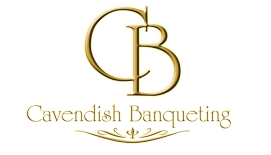Nigerian weddings are as colourful as they are lively and exciting. And, depending on what the couple wants, they can be wed in both traditional and modern styles, which means two ceremonies with equal importance and, in all likelihood, staggering expenses. According to research, the average Nigerian wedding now costs over £20,000 and can often far surpass even this figure.
As one of the most prestigious Nigerian Weddings in London, Cavendish Banqueting can help ease the burden of cost by providing an excellent variety of wel priced all in one package deals.
Traditional Nigerian weddings are held with more importance in Nigerian culture. They are the means by which parents and extended family give their approval and blessing. So anything else can take a backseat, unless the couples can afford to celebrate both.
In Nigeria, there are different cultures that follow different wedding customs and practices. This means that what could be traditional for the bride, might not be the same for the groom, especially if they come from different tribes, including Hausa, Fulani, Kanuri, Igbo, Yoruba, etc. When it is an inter-tribal union, the culture to be followed will not necessarily be that of the bride. But the couple actually have the option to celebrate both cultures, which can make the celebration even more vibrant and exciting.
Fulani, Hausa and Kanuri are quite similar, especially in terms of the dinner, reception, the length of celebration, and other parts of the wedding. One exception is the gifts to be presented to the bride’s family. Most of the time, the groom is expected to give as much as possible as this showcases his wealth and his capacity to provide for his bride. The differences, however, stop at the Nikkah or Wedding Fatiha where the dowry is given to the bride’s father or guardian. Only the male members of the families are in attendance for this event.
Among the three, a Kanuri wedding is most expensive. Two of its important rituals are the wankan amarya where the bride wears the traditional attire and is carried on the backs of the female members of the groom’s family; and the washing of the bride’s hair right before the wedding by the groom’s aunts and grand aunts. For a Hausa wedding, a ceremony can last six days or more, starting from the bridal shower to the Kamu and the bride’s send-off. In a Fulani wedding, on the other hand, a “Budan Kai” must be performed. This translates to “unveiling of the bride” and the ritual is simply to convey her to the house of her new groom to be presented to her mother-in-law. Then, the money shower follows where cash or cheque is handed to the bride, starting with her mother-in-law and the rest of the groom’s family. The ritual is then repeated to the groom, where his family, starting with his mother, gift him with money.
Gifts, in these cultures, are more than mere tokens—they’re symbols of blessing, support, and continuity. Whether it’s bundles of cash, fabrics, or kitchenware, each item carries a meaning, often passed down through generations. In modern interpretations of these weddings, families are also beginning to blend tradition with personal flair. That’s where thoughtful keepsakes like a custom clock keychain come in—combining utility with a personal touch. It’s a small but meaningful memento, perfect for wedding favors or even as part of a gift bundle, serving as a gentle reminder of a couple’s timeless union. In a celebration so rich with ritual and meaning, every detail—no matter how small—can hold a story.
Cavendish Banqueting is one of the largest Nigerian Weddings in the London area and as such, we can cater for 400+ guests indoor and also organise marquee based outdoor events for you to accommodate up 1000 guests.
In Nigerian weddings, everything is paid for by the groom, except the reception that is taken care of by the bride’s mother. When it comes to the menu, it is vital to consider dishes that are traditional to the tribe, which means an inter-tribal wedding would have a combination of several food options. At Cavendish Banqueting, we have been catering for Nigerian weddings for more than 10 years and offer a huge range of traditional dishes to choose from. Sometimes couples prefer to add international cuisines, the same way they would integrate modern wedding trends, such as photo booths, Instagram and more fashion-forward aso ebi (traditional outfits).
Of course, we can help with all of this.
